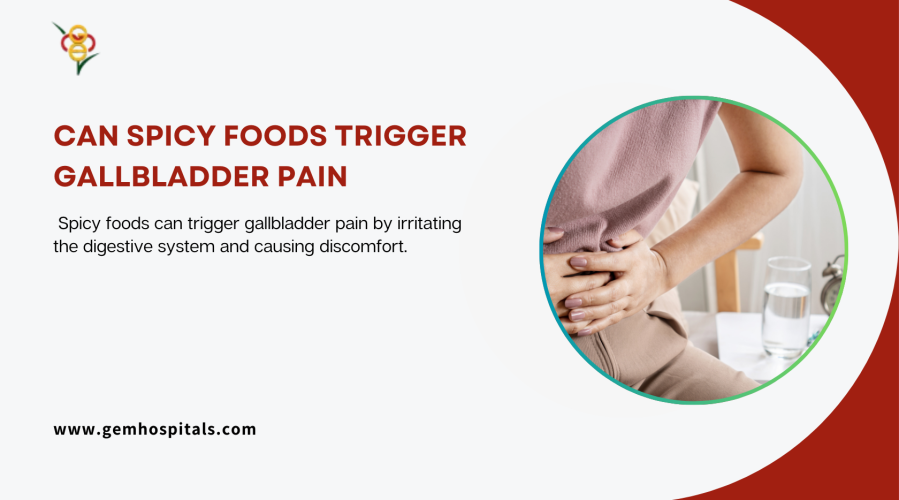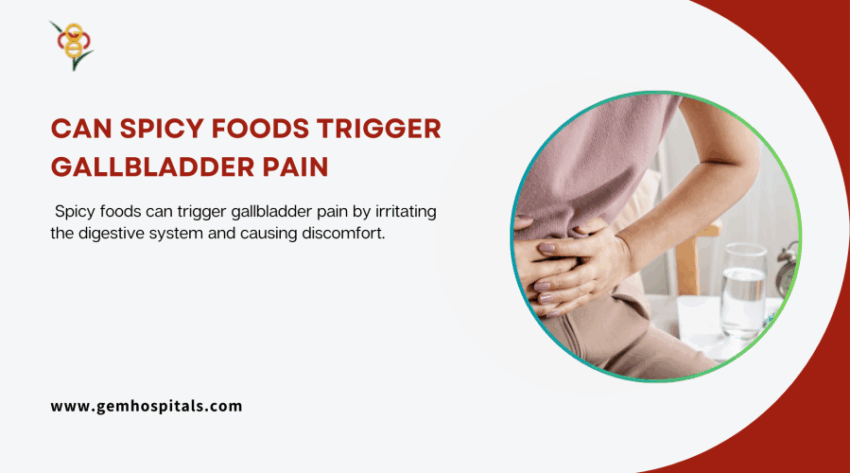
Spicy Food and Your Gallbladder: What You Need to Know
For many, the fiery kick of spicy food is a culinary delight. From the subtle warmth of paprika to the intense heat of habaneros, spices add depth and complexity to dishes around the world. However, individuals with gallbladder issues often find themselves wondering: Is spicy food safe for my gallbladder? This article delves into the relationship between spicy food and gallbladder health, providing evidence-based insights to help you make informed dietary choices. We’ll explore potential risks, benefits, and practical strategies for managing your diet while enjoying the flavors you love. Understanding how spicy food affects your gallbladder is crucial for maintaining your overall well-being and preventing potential complications. Navigating dietary restrictions can be challenging, but with the right information, you can enjoy a balanced and fulfilling diet.
Understanding the Gallbladder and Its Function
The gallbladder is a small, pear-shaped organ located beneath the liver. Its primary function is to store and concentrate bile, a digestive fluid produced by the liver. Bile aids in the digestion and absorption of fats in the small intestine. When you consume fatty foods, the gallbladder releases bile into the digestive tract to break down these fats into smaller molecules that can be easily absorbed by the body. The gallbladder plays a vital role in maintaining efficient digestion and nutrient absorption.
Common Gallbladder Problems
Several conditions can affect the gallbladder, leading to various symptoms and complications. The most common gallbladder problems include:
- Gallstones: These are hard, pebble-like deposits that form in the gallbladder. They can range in size from tiny grains of sand to larger stones. Gallstones can block the flow of bile, causing pain, inflammation, and infection.
- Cholecystitis: This is inflammation of the gallbladder, often caused by gallstones blocking the cystic duct (the tube that carries bile from the gallbladder). Symptoms include severe abdominal pain, fever, and nausea.
- Biliary Dyskinesia: This condition occurs when the gallbladder doesn’t empty properly, leading to abdominal pain and discomfort.
- Gallbladder Cancer: Although rare, gallbladder cancer can develop and is often diagnosed at a late stage.
These conditions can significantly impact digestive health and overall well-being, making it essential to understand their potential triggers and management strategies.
The Impact of Spicy Food on the Digestive System
Spicy food, characterized by its pungent and fiery flavors, primarily owes its heat to compounds like capsaicin, found in chili peppers. Capsaicin stimulates pain receptors in the mouth and throat, creating the sensation of heat. When consumed, spicy food can have several effects on the digestive system:
- Increased Gastric Acid Production: Spicy food can stimulate the production of gastric acid in the stomach. While this can aid in digestion for some, it may exacerbate symptoms of acid reflux or heartburn in others.
- Accelerated Gastric Emptying: Some studies suggest that spicy food can speed up the rate at which food empties from the stomach into the small intestine. This can potentially lead to diarrhea or discomfort in individuals with sensitive digestive systems.
- Inflammation: In some cases, spicy food can trigger inflammation in the digestive tract, particularly in individuals with pre-existing conditions like irritable bowel syndrome (IBS) or inflammatory bowel disease (IBD).
These effects can vary depending on individual tolerance, the type and amount of spice consumed, and the presence of underlying digestive conditions. It’s important to recognize how your body responds to spicy food and adjust your diet accordingly.
Spicy Food and the Gallbladder: Is There a Connection?
The relationship between spicy food and gallbladder health is complex and often debated. While there is no direct evidence to suggest that spicy food causes gallbladder problems, it can exacerbate symptoms in individuals with pre-existing gallbladder conditions. Here’s a closer look at the potential connections:
Potential Risks
- Gallstone Attacks: Spicy food can stimulate the release of bile from the gallbladder. If gallstones are present, this increased bile flow can lead to a blockage in the cystic duct, triggering a gallbladder attack. Symptoms of a gallbladder attack include sudden, intense pain in the upper right abdomen, nausea, vomiting, and pain radiating to the back or shoulder.
- Inflammation: In individuals with cholecystitis (inflammation of the gallbladder), spicy food can worsen inflammation and exacerbate symptoms. The increased gastric acid production and digestive activity triggered by spicy food can further irritate the inflamed gallbladder.
- Digestive Discomfort: Even without gallstones, spicy food can cause digestive discomfort in individuals with gallbladder issues. The accelerated gastric emptying and increased gastric acid production can lead to bloating, gas, and abdominal pain.
Potential Benefits
Interestingly, some studies suggest that capsaicin, the active compound in chili peppers, may have anti-inflammatory and antioxidant properties. These properties could potentially offer some protective benefits for the gallbladder. However, more research is needed to fully understand the potential benefits of spicy food for gallbladder health.
Managing Your Diet: Tips for Enjoying Spicy Food with Gallbladder Issues
If you have gallbladder issues and enjoy spicy food, it’s essential to manage your diet carefully to minimize potential risks and discomfort. Here are some practical tips:
Consult with a Healthcare Professional
Before making significant changes to your diet, consult with your doctor or a registered dietitian. They can provide personalized recommendations based on your specific condition and medical history.
Start Slowly
If you’re unsure how your gallbladder will react to spicy food, start with small amounts and gradually increase your intake as tolerated. Pay attention to your body’s signals and stop if you experience any discomfort.
Choose Mild Spices
Opt for milder spices like paprika, cumin, or turmeric, which are less likely to trigger gallbladder problems. Avoid extremely hot spices like habaneros or ghost peppers, which can cause more intense reactions.
Pair with Bland Foods
When consuming spicy food, pair it with bland foods like rice, potatoes, or bread. These foods can help absorb excess gastric acid and reduce the overall impact of the spice on your digestive system. [See also: Bland Diet Recipes for Gallbladder Issues]
Avoid High-Fat Spicy Foods
Fatty foods can put extra stress on the gallbladder. Avoid spicy food preparations that are high in fat, such as fried or creamy dishes. Opt for grilled, baked, or steamed options instead.
Stay Hydrated
Drinking plenty of water can help dilute gastric acid and promote healthy digestion. Aim to drink at least eight glasses of water per day, especially when consuming spicy food.
Keep a Food Diary
Keep a food diary to track your spicy food intake and any associated symptoms. This can help you identify specific spices or dishes that trigger gallbladder problems and make informed dietary choices.
When to Seek Medical Attention
It’s crucial to seek medical attention if you experience any of the following symptoms after consuming spicy food:
- Severe abdominal pain
- Nausea or vomiting
- Fever
- Jaundice (yellowing of the skin and eyes)
- Dark urine
- Light-colored stools
These symptoms could indicate a gallbladder attack or other serious gallbladder problem that requires prompt medical intervention. Early diagnosis and treatment can help prevent complications and improve your overall health.
Conclusion: Navigating Spicy Food and Gallbladder Health
While spicy food doesn’t directly cause gallbladder problems, it can exacerbate symptoms in individuals with pre-existing conditions. By understanding the potential risks and benefits, and by carefully managing your diet, you can enjoy spicy food in moderation without compromising your gallbladder health. Remember to consult with a healthcare professional for personalized recommendations and to seek medical attention if you experience any concerning symptoms. Ultimately, the key is to listen to your body, make informed choices, and prioritize your overall well-being. With the right approach, you can savor the flavors you love while maintaining a healthy and balanced lifestyle. The impact of spicy food varies, so careful consideration and moderation are key. Understanding your body’s response to spicy food is paramount for managing gallbladder health. Remember, enjoying spicy food responsibly is possible with the right knowledge and precautions.
